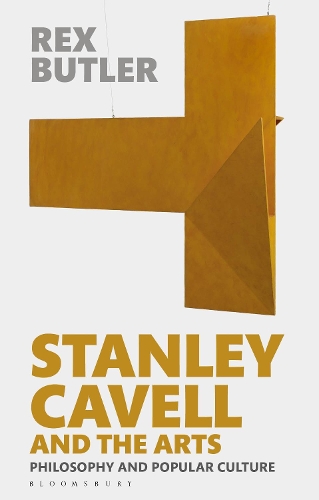
Stanley Cavell and the Arts: Philosophy and Popular Culture
(Hardback)
Available Formats
Publishing Details
Stanley Cavell and the Arts: Philosophy and Popular Culture
By (Author) Dr Rex Butler
Bloomsbury Publishing PLC
Bloomsbury Academic
15th October 2020
United Kingdom
Classifications
Tertiary Education
Non Fiction
Media studies
Theory of art
Film history, theory or criticism
700.1
Physical Properties
Hardback
232
Width 138mm, Height 216mm
417g
Description
In the late 1990s, Rosalind Krauss, one of the principal theorists of post-modernism in the arts, began using the term post-medium in her work. It was a nod to the American ordinary language philosopher Stanley Cavell, who had been thinking through a concept of medium in art for 30 years. Today with the decline of post-modernism, Stanley Cavell has emerged as one of the most important figures for thinking again about the visual arts, film and theatre. Stanley Cavell and the Arts looks at Cavells extensive writings on a wide variety of artforms and at a number of writers (Michael Fried, William Rothman) influenced by his work. Over a 50-year career, Cavell wrote about visual art, photography, classical music, Shakespeare, the plays of Samuel Beckett and perhaps most notably Hollywood cinema. Stanley Cavell and the Arts offers an overview of Cavells writings on the arts, situating them within his wider philosophical practice, analysing in detail his treatment of particular art forms and looking at the work of those he has deeply shaped.
Reviews
As well as interweaving Cavells thinking about the arts including film, theatre, and painting with his broader philosophical concerns, Butlers study also considers his legacy and uses by thinkers such as Michael Fried and William Rothman, exploring Cavell beyond Cavell. Thoughtful and thought-provoking, it approaches Cavell with uncommon freshness and insight. This is an important intervention into Cavell Studies, and studies of the arts more generally. * Catherine Wheatley, Senior Lecturer in Film Studies, King's College London, UK *
Already an attuned interpreter of contemporary art and its philosophical inheritances, Rex Butler provides here a new series of timely, assured, and rewarding engagements with the some of the works and modes of art that most captivated Stanley Cavell. Ranging from classical to Romantic to modernist, the theatrical to the filmic, photography to painting, Butler articulates the stakes of Cavells interest in arts capacity for philosophical illumination, how such commitments intersect with his preoccupations more broadly with ordinary language philosophy, skepticism, and moral perfectionism, andperhaps most cruciallyoffers yet more reasons why Cavells thinking about art should matter to us in the present day and the days to come. Extended analyses of William Rothman and Michael Fried provide further occasion for situating Cavells achievements and legacy in the context of salutary contributions by illustrious and accomplished friends. * David LaRocca, Cornell University, USA, editor of The Thought of Stanley Cavell and Cinema *
Author Bio
Rex Butler is Professor of Art History at Monash University, Melbourne, USA. He writes on contemporary and Australian art and has written books on a number of literary (Borges) and philosophical (Baudrillard, Zizek, Deleuze and Guattari) figures.
